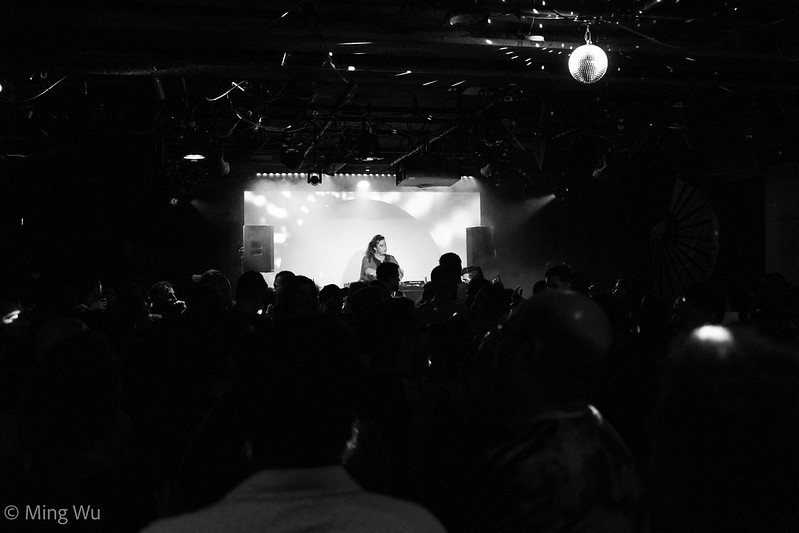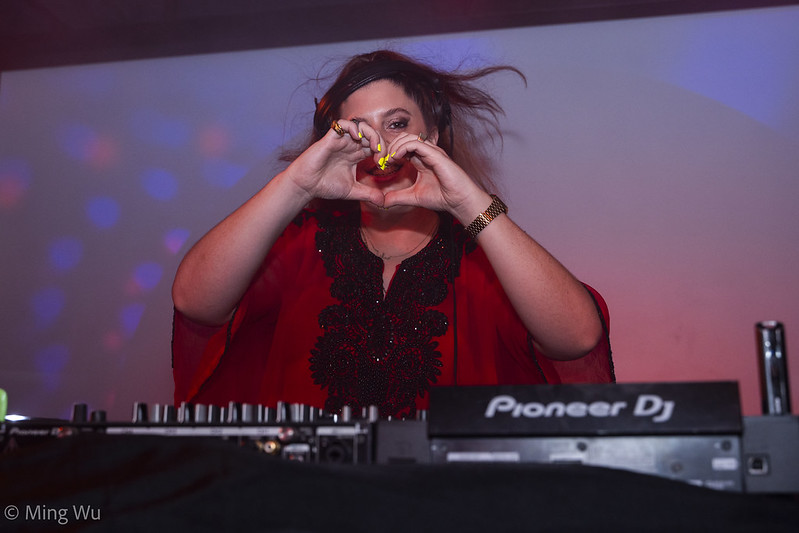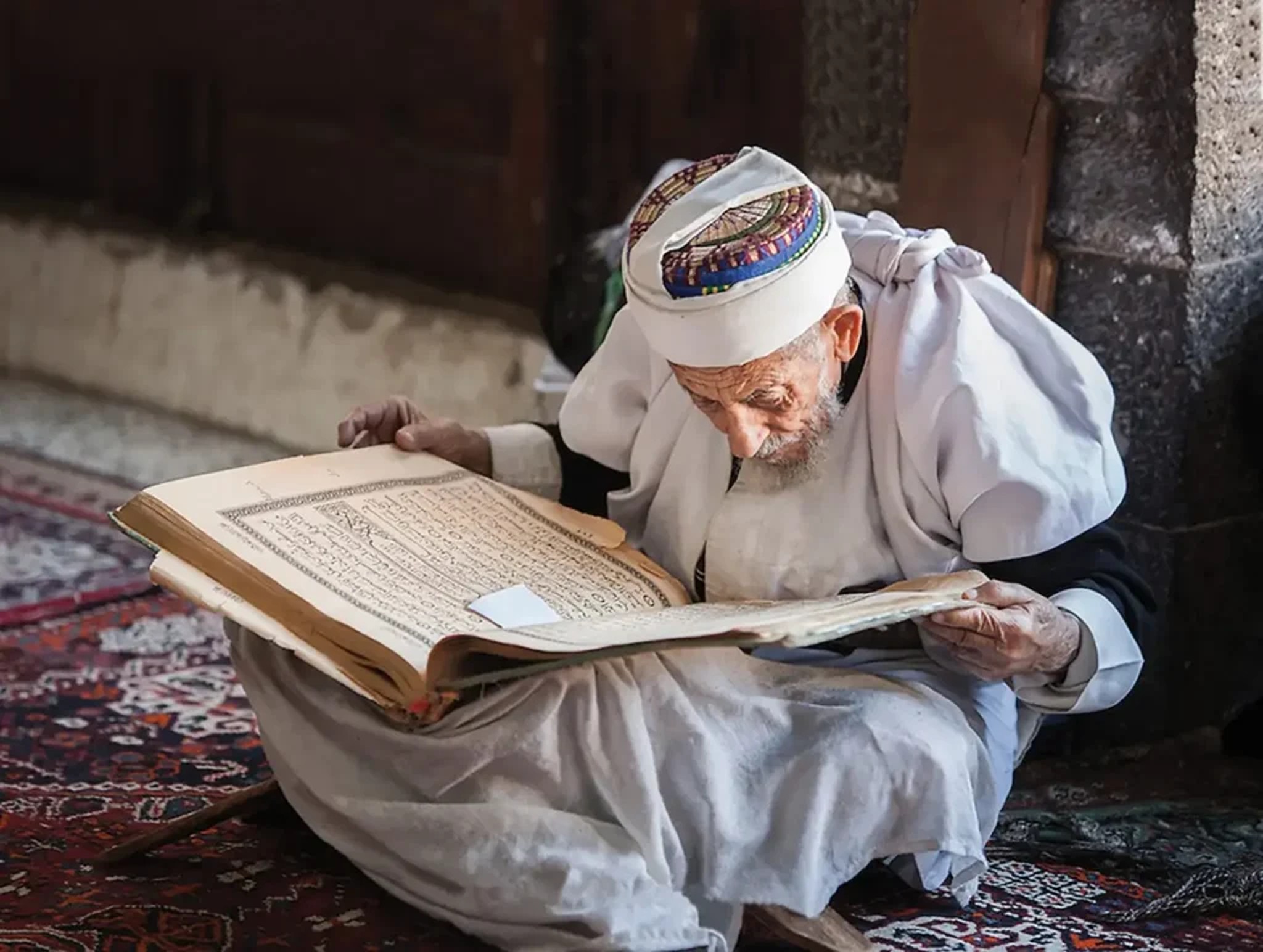On the eve of the brutal war on Gaza, the evening in the Canadian capital, Ottawa, began like any other in a churning, vibrant, and reckoning Arab diaspora. It kicked off with something extraordinary: a film about a Coptic Orthodox drag queen as part of the 2LGBTQ+ Ottawa Film festival. In the deeply cloistered and devout Orthodox community as well as the Arab, and Arabic-speaking worlds, public and proud representation of Egyptian, Arab, and Coptic queer experiences are almost unheard of.
Produced by Fae Pictures, the movie, Queen Tut, premiered in Canada for the first time, offering the first and only representations of a devout Coptic Orthodox drag queen coming of age in Toronto.
Even with some representational missteps—for example, the use of Lebanese actors in place of queer and available Egyptian actors, and the gentle mimicry of inaccessible scenes of the Orthodox Church and its priests—the film still packed an emotional punch. In one scene, the gentle and weepy Nabil, the Coptic Egyptian protagonist, imagined coming out to his mother who had just passed. In others, he wrestles with his Orthodox piety under the pained and judging gaze of his father, or the sheer panic of bumping into a fellow and closeted Church parishioner at a gay club.
For the largely queer and Arab audience, many of the scenes on the screen were all too familiar and heightened the viewing experience of simultaneously existing in a theater without the threat, violence, silence, and ostracization that have often shaped Arab and Arabic-speaking queer experiences in and outside of the region.
After the film, many audience members filed into the SAW gallery dance floor, just one level below the theater, for Laylit’s 5th-anniversary tour. Meaning ‘night’, Laylit is a Montreal and New York-based party and entertainment scene, with a focus on Arab/SWANA music and its diaspora interpolations. The lineup included one of the founders, Nadim Maghzal, Loosey Lou from Ottawa, MNSA from Montreal, and ended with the fiery prowess of the UK based DJ, Saliah.

A group of young and visibly queer men amassed enough space on the crowded dance floor to actually dabke, the Levantine line-dance, holding hands and stomping firmly on the ground. The dance, having taken on a politicized meaning by Palestinians for momentarily owning the ground below their dancing feet, was made all the more emblematic when Saliah played a remix of ‘Ana Dammi Falastini’ (My Blood is Palestinian) by Palestinian singer Mohammed Assaf. As soon as the audience recognized the familiar sound of the Assaf’s opening call, the floor simply erupted.
Habibi Plz fans, produced by the up and coming Canadian social enterprise company, suddenly began to flash open and close, circulating the heavy air between us. Even with the loud thick beats and stomping feet, the sound of fans opening and closing cracked through the air and the rainbow coloured word habibi coalesced with the plight for another deeply oppressed people, Palestinians in Gaza.
In that instance, the dance floor was no longer a dance floor. And the fans that we once saw our grandmothers and aunties use under the sweltering heat of our homelands, burst open to the sounds of new sonic negotiations, this time, our shifting Arab-Canadian diaspora politics in a new homeland — all as we too straddled our ambivalent belonging in the capital of a settler colonial nation and one on unceded territories of the Algonquin nation.
On the one hand, Assaf’s ‘Anna Dammi Falastini’ bellowed against the erasure of Palestinian existence, rights, and their right to live against Israelis’ offensive. On the other hand, the rainbow colors of the words habibi crafted a queer visibility that would have been otherwise unavailable in traditional Arab settings. In the thick of this closeted grief, and in the face of war, Arab queer bodies and allies took a cue from occupied Palestinians who have long leveraged transgressive joy in the face of a brutal occupation, dehumanization, pink washing, and community exile… and we danced.
In Ottawa, such transgressive joy — drawn from Adrienne Maree Brown’s notion of a pleasure activism that wield joy as a form of politic — took on further meaning; On September 20th, a coalition of Muslim and right-wing activists had just organized a march to Parliament Hill, dubbed the “1MillionMarch4Children.”
Their goal was to protest for “the elimination of the Sexual Orientation and Gender Identity (SOGI) curriculum, pronouns, gender ideology and mixed bathrooms in schools.” The overrepresentation of Arab, Arabic speaking Christians, and Muslim protestors sent a clear and painful message to their kin: queer and trans Arabs could not safely find home among their own, and in the overwhelming White counterprotest for queer and trans rights, they would be outliers there too.
But on the dancefloor this was not the case. It was a space of resounding queerness, Palestinian solidarity, and a shared joy despite the darkness ahead.
In a moment that I will never forget, and one that seemed to replicate a poignant scene in the Queen Tut movie I had just seen, I looked up to see a familiar face under DJ Saliah’s fiery riffs.
As I was dancing, someone whom I had often seen at my local Coptic Orthodox Church, approached me gingerly from across the floor. Unlike the panic that Nabil experienced in the Queen Tut film, we eyed each other with surprise. After a heavy pause, we fell into a hearty hug, laughing and relieved to find one another here, together. As we held each other, the grief and the joy ebbed, and as the world around us continued to erupt – all we could do was dance.







Comment (1)
[…] post Palestinian Solidarity, Hot Beats, and Coptic Drag Queens: Transgressive Joy on An Ottawan Dance Flo… first appeared on Egyptian […]